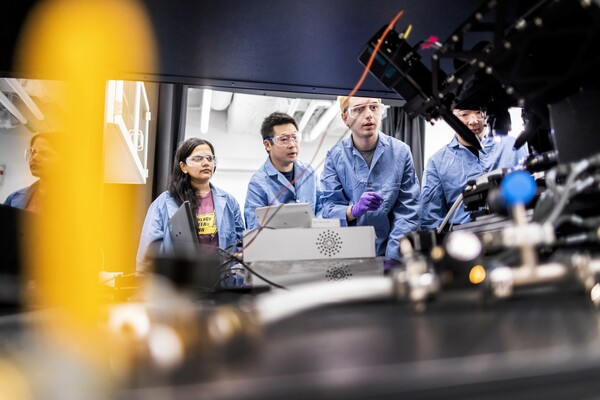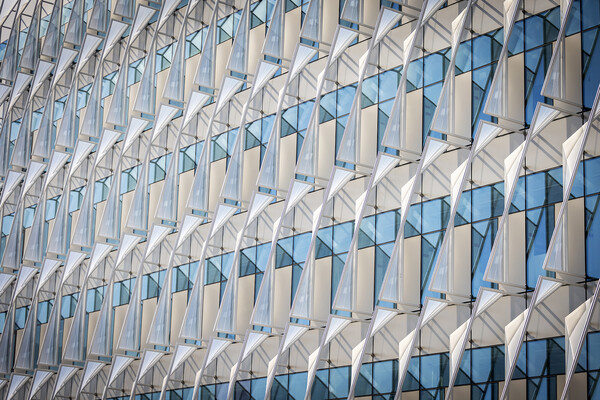
nocred
It’s not every venue that will take a chance on a local hip-hop act with no national following, an experimental ambient music series and a forum from the African People’s Solidarity Committee. Of course, the Rotunda is hardly every venue.
Housed in the former Church of Christ, Scientist at 4014 Walnut Street, in the heart of the revamped 40th Street corridor, the music, arts and cultural center is at once a welcoming stage for acts who may not have a home elsewhere and a venue where Penn students can mingle with West Philadelphia residents. “Here, all different kinds of people interact,” said Gina Renzi, general manager of The Rotunda. “Penn does a lot of talking about bridging the gap. This place really is the bridge.”
The Foundation is built
Andrew Zitcer C’00 GCP’04, the 40th street cultural asset manager for facilities and real estate, conceived the idea for this arts initiative in an urban studies seminar led by Ira Harkavy, director of the Center for Community Partnerships. When faced with the assignment of how to enrich the cultural life of West Philly, Zitcer and his classmates came up with an idea for a performance space, which they called the Foundation Community Arts Initiative.
They approached Real Estate Services to find a physical space for their idea and began to use the Rotunda building for events Thursday through Sunday in the summer of 1999. In the cream-colored building, which boasts a distinctive tiled roof and oversized windows reminiscent of early Christian structures, they’ve held shows as varied as open mikes, a Latino Heritage Month celebration and an urban music showcase.
A space for the whole community
Renzi, who went to school at Drexel and Temple, began working with the Rotunda in the summer of 2002 and signed on full time in the fall of last year. “The fact that I did not go to Penn was a selling point,” she said. “We were going to include Penn students without a doubt, but [it proved] we could reach out to the community.”
The Rotunda also features community events, such as forums on community leadership, an Urban Writers Support Group and films on topics of community interest. “It’s focused on local talent and the richness of West Philadelphia,” said Zitcer. “Though it wasn’t in my initial plan, the idea of it being alcohol-free. . . in retrospect is probably one of the most important things about the Rotunda.” This makes it a comfortable place for parents to bring children and a viable nightlife option for teens.
On the fringe
On a recent Friday night in April, a mixed-age group sat in chairs, lounged on the floor and milled around a table piled high with free food—courtesy of Chef Jeff—for the monthly experimental music and performance showcase, Gate to Moon Base Alpha. Musicians Charles Cohen and Joe Lentini took to the stage beneath steep wooden rafters and a vaulted ceiling to play a mixture of whirrs and beeps, sometimes balanced by a synthetic drumbeat. Above their heads, artist David Gerbstadt manipulated oil, dyes and water and projected the images onto the wall to create a mesmerizing, moving canvas of color and shifting shapes reminiscent of dividing cells.
If all of this strikes you as esoteric, you’re right, but that’s the point. “It’s definitely fringe stuff,” said Renzi, who curated the Gate to Moon Base Alpha series in 2000 to 2001. “It’s really important to get genres out that don’t have a voice.”
Renzi and Zitcer hope to get enough funding to transform the sanctuary in the front of the building—which contains the actual rotunda—into more performance space. Currently, the front of the building is off-limits to the public; all performances take place in the large back hall. The goal is to “continue what we’re doing, but on a larger scale,” said Renzi. “We want people to take ownership of the building.”
For more information, visit their web site: www.foundationarts.org.

nocred

Image: Pencho Chukov via Getty Images

The sun shades on the Vagelos Institute for Energy Science and Technology.
nocred

Image: Courtesy of Penn Engineering Today